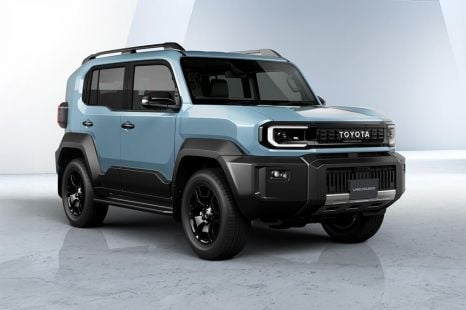

Damion Smy
Toyota LandCruiser FJ baby off-roader to get HiLux diesel, chance for Australia – report
5 Minutes Ago
Nissan's new Z gets a jolt of twin-turbo power and lines up on spec pretty closely to the Supra.

Senior Contributor
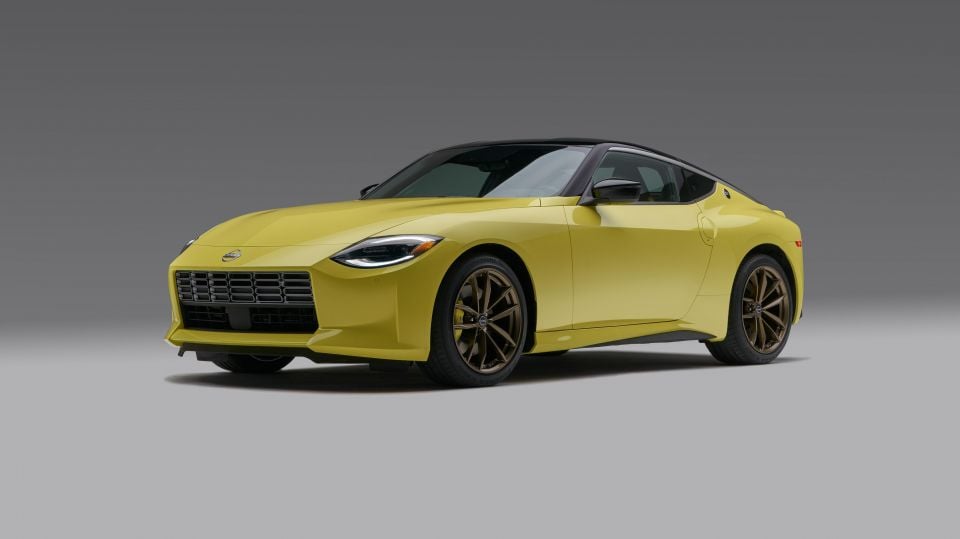

Senior Contributor
The first new Nissan Z in 12 years has set a fire under Japanese performance car enthusiasts. And fair enough, because on first impression Nissan has delivered the car it previewed with the Z Proto.
Namely, an overhauled and retuned 370Z architecture wrapped in a new body, with a greatly improved interior, and new twin-turbo V6 power from Infiniti.
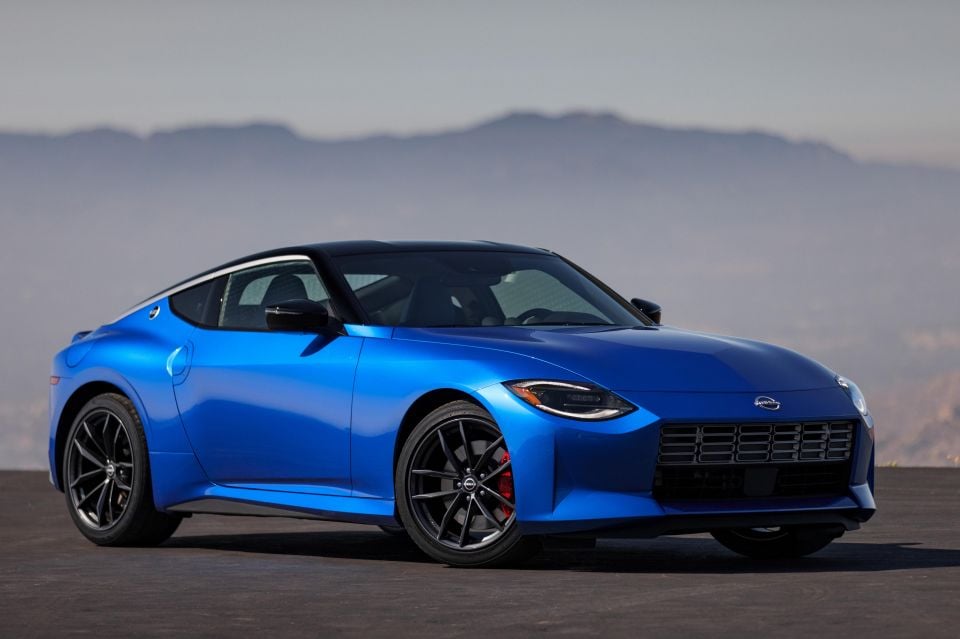
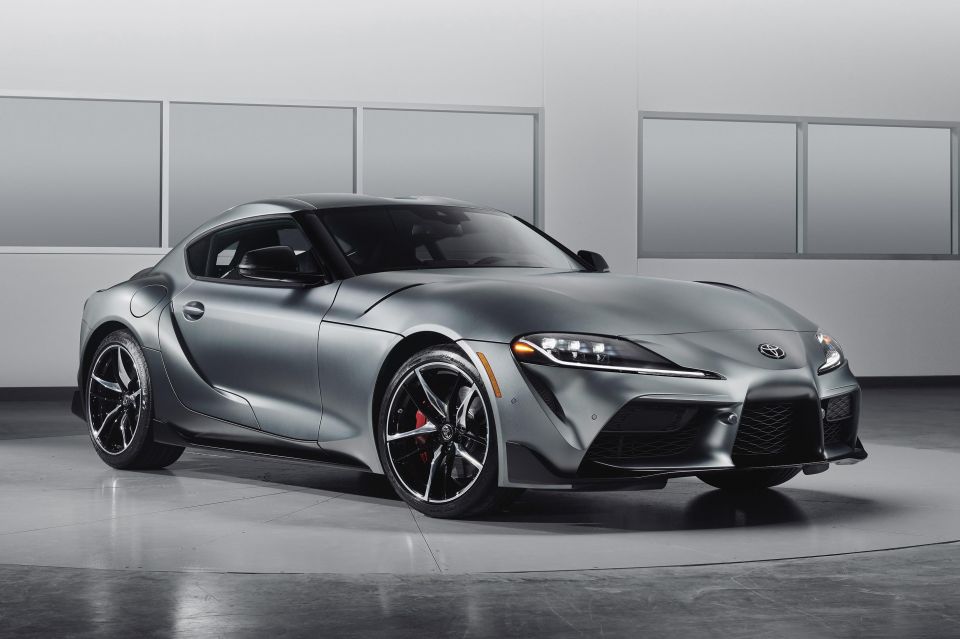
There are more than a few parallels to another Japanese-branded sports coupe, the Toyota Supra. This hasn’t always been the case over the two nameplates’ storied histories.
To preface, we don’t know all details on the Z yet – Nissan’s launch info didn’t cover weight or acceleration – nor do we have Australian pricing and spec ahead of the 2022 release.
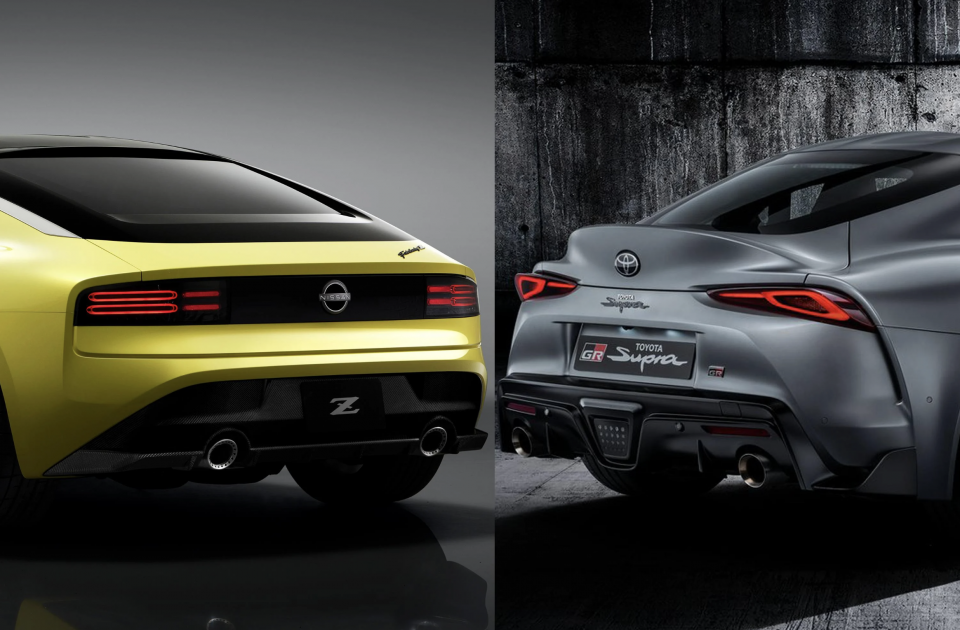
For what it’s worth Nissan is promising US pricing kicking off around US$40,000, which would be about 20 per cent cheaper than the entry six-cylinder Supra in that market.
The six-cylinder Supra in Australia has a base price of $87,000 before on-road costs, suggesting the Z might cost around $70,000 here. A 370Z Nismo tops out at $64,490 before on-roads.
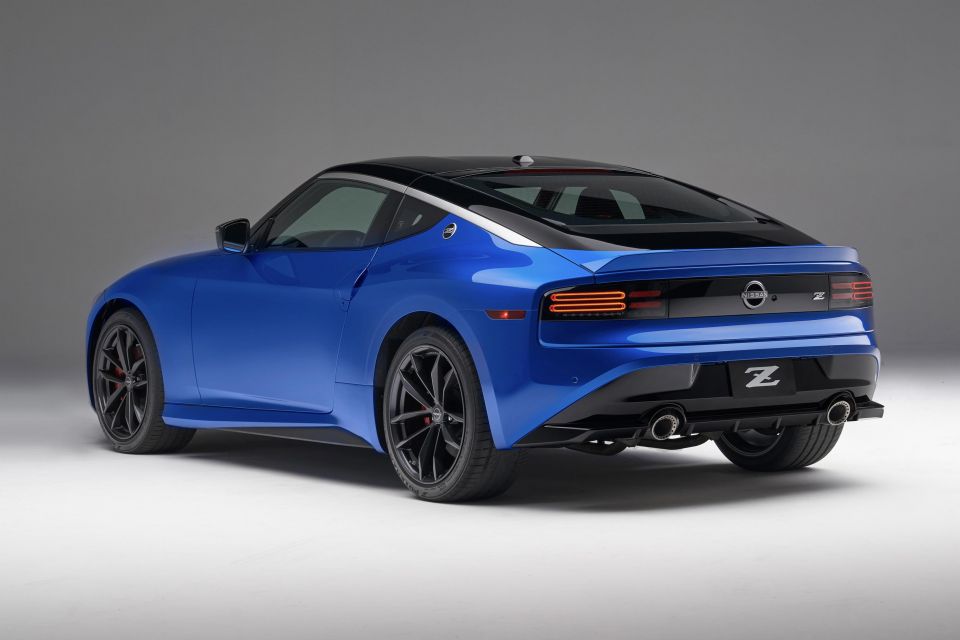
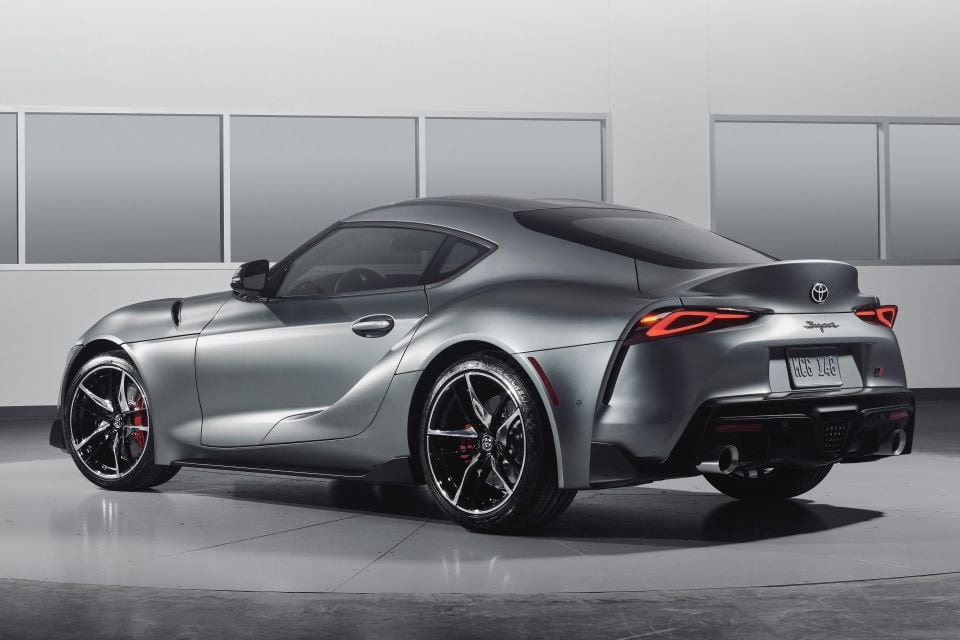
Low-volume sports cars are becoming difficult to produce profitably unless you can control development costs.
Nissan and Toyota went about doing just this in different ways, in order to rebirth two vehicles they both desperately wanted to keep in their line-ups.
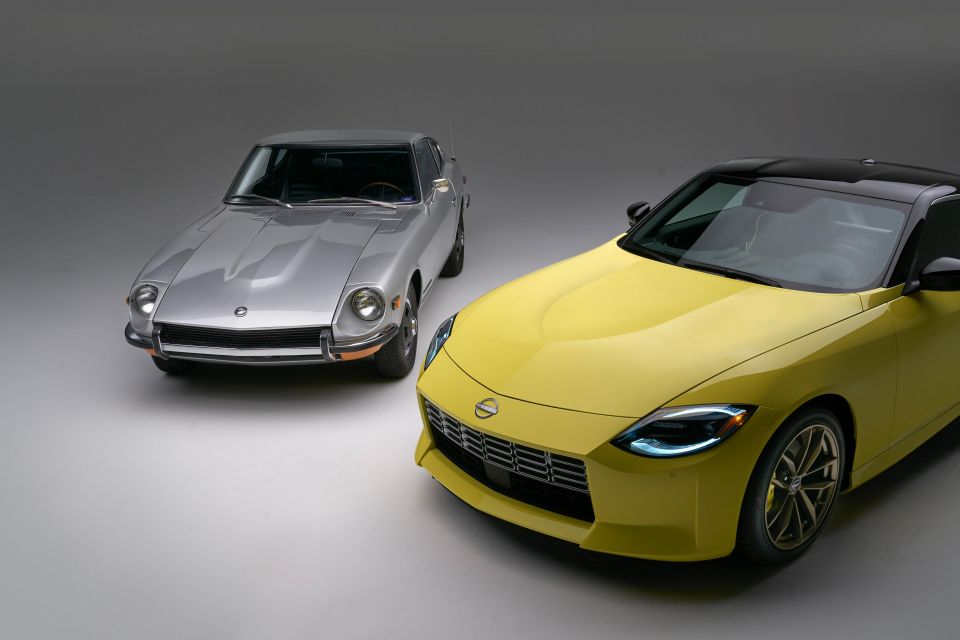
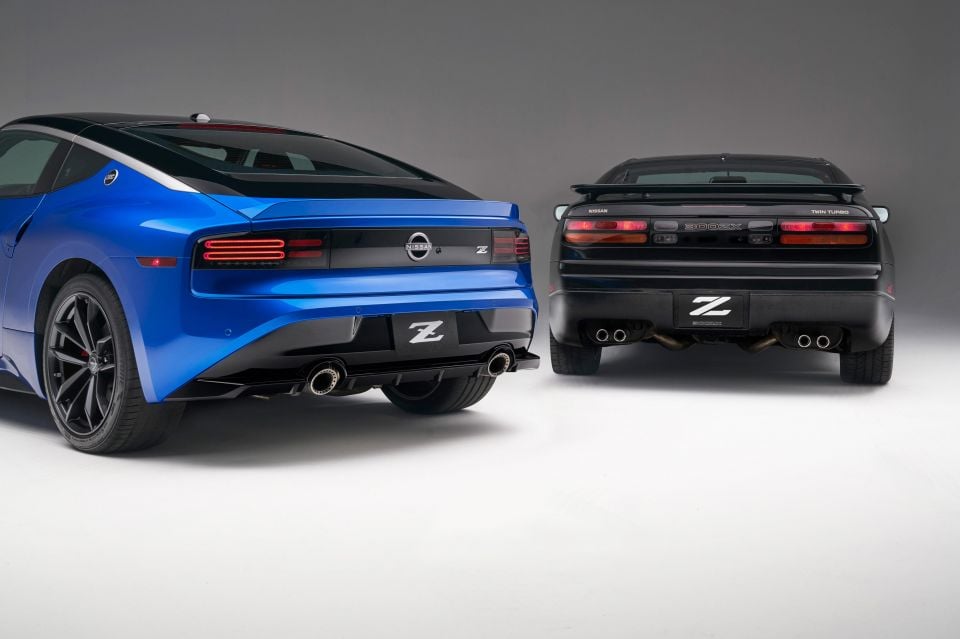
For Nissan the answer was to heavily rework the 370Z’s architecture rather than start with a completely blank sheet of paper, and to repurpose the Infiniti Q60 Red Sport’s lusty twin-turbo V6.
For Toyota it was to expand its broader agreement with BMW to reduce costs. Thus the Supra and Z4 share a platform, (retuned BMW) engine and transmission, and are both made by Magna in Austria.
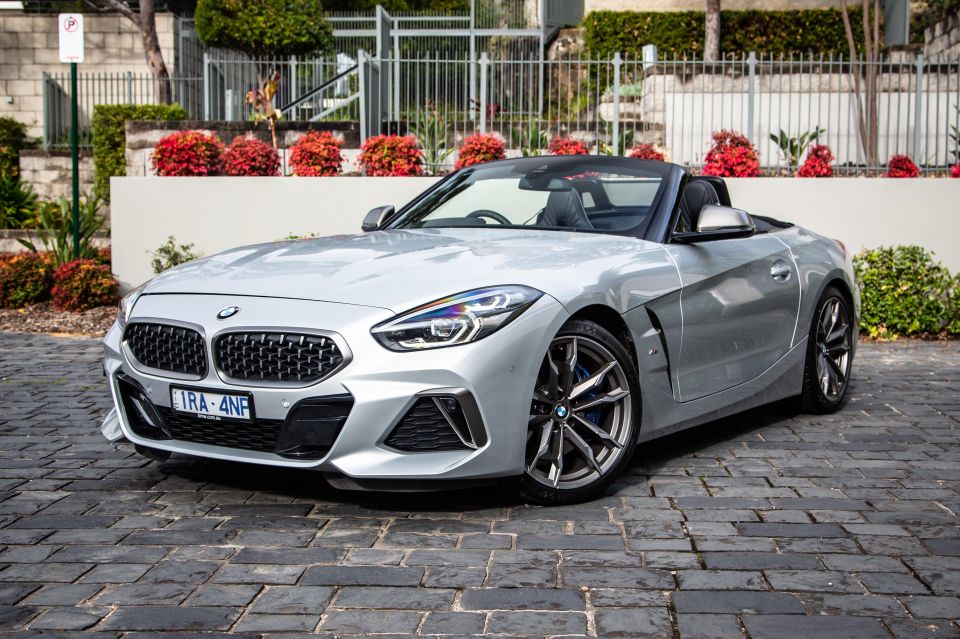
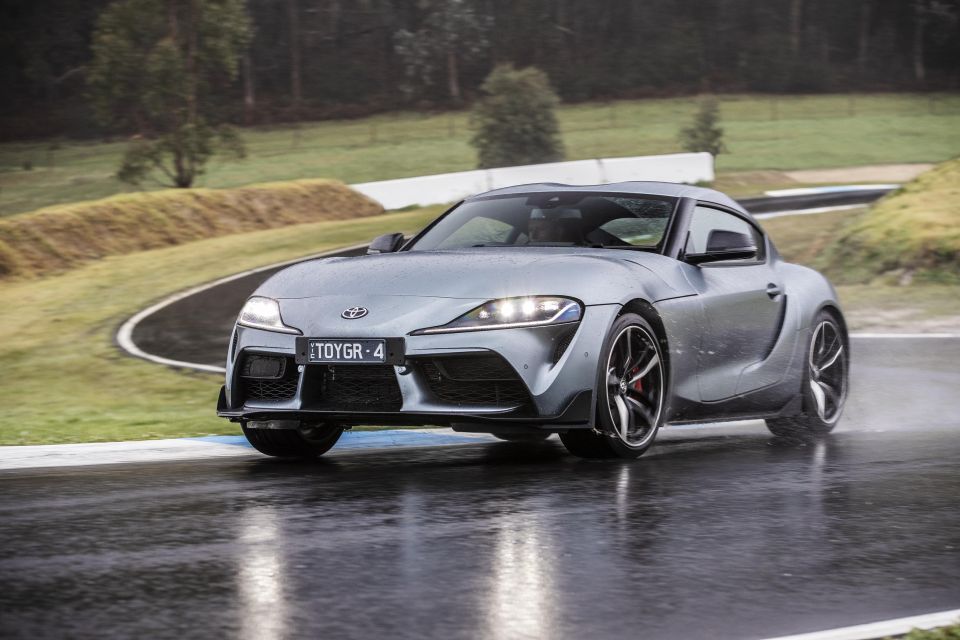
| Nissan Z | Toyota Supra | |
|---|---|---|
| Length | 4378mm | 4379mm |
| Width | 1844mm | 1854mm |
| Height | 1316mm | 1294mm |
| Wheelbase | 2550mm | 2470mm |
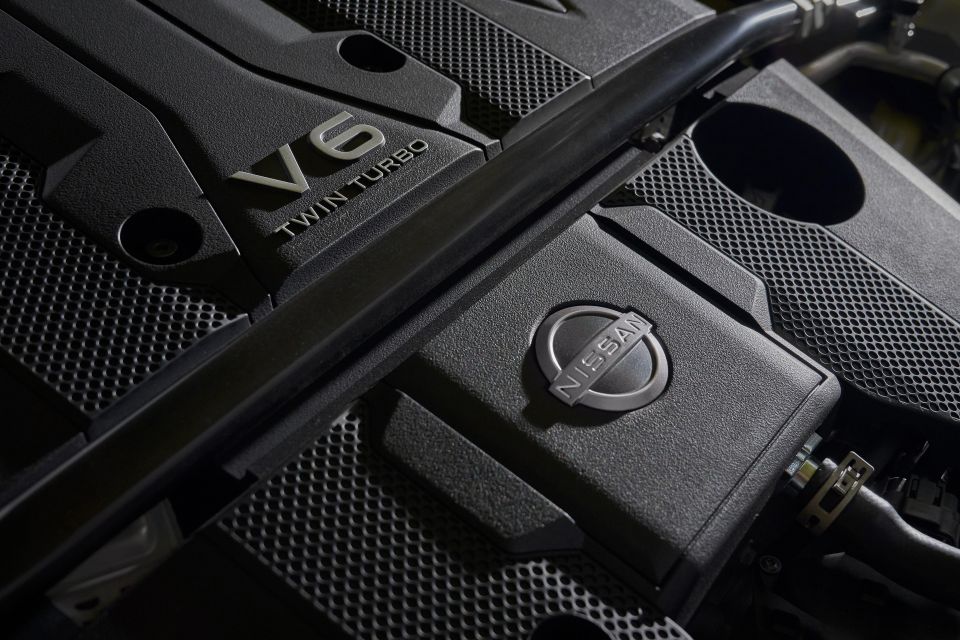
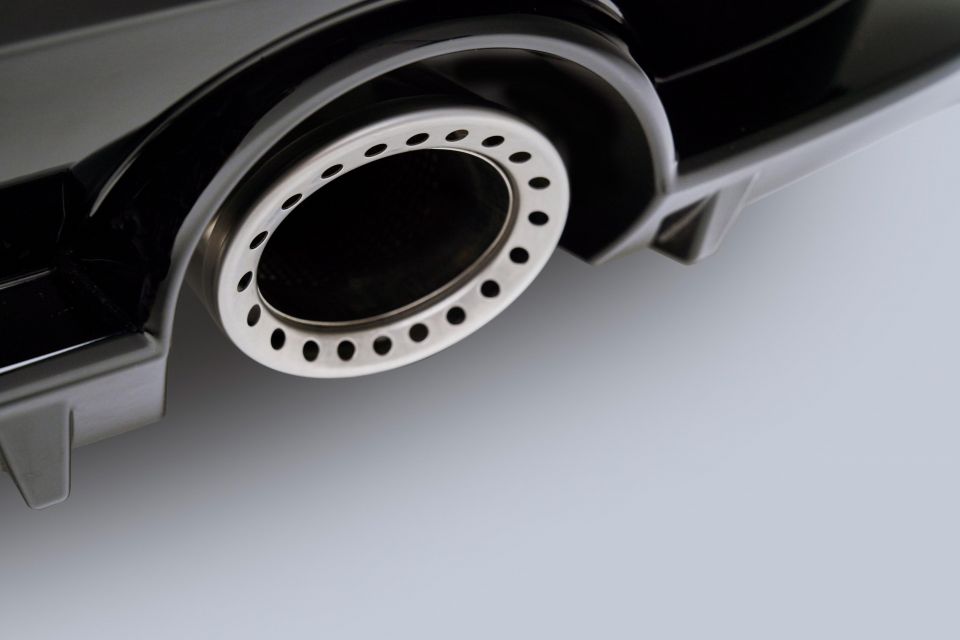
Nissan
The new Z uses the Infiniti Q60 Red Sport’s VR30DDTT 3.0-litre twin-turbocharged V6 engine, pushing out 298kW (400hp) and 475Nm of torque, driving the rear wheels.
The transmission choices are a six-speed manual or new nine-speed auto with paddles. We don’t have any 0-100km/h claims as yet, but expect it to be a fair bit quicker than the mid-fives posted by the 253kW and 371Nm aspirated V6 370Z.
Nissan has fitted the manual versions with a carbon-fibre composite driveshaft and tuner-friendly EXEDY clutch. The top-spec Z Performance grade adds rev matching and a mechanical-clutch limited-slip diff.
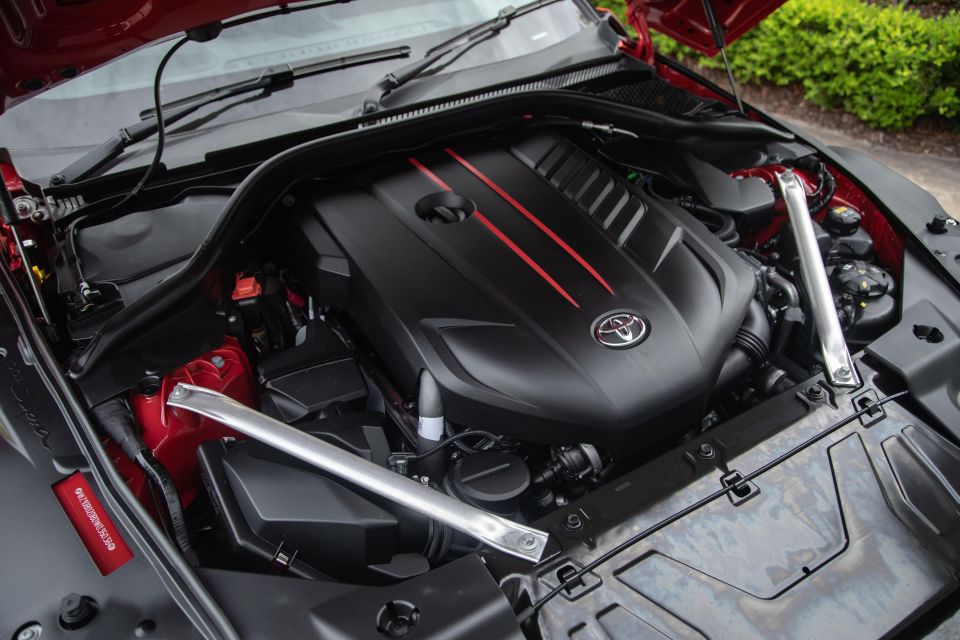
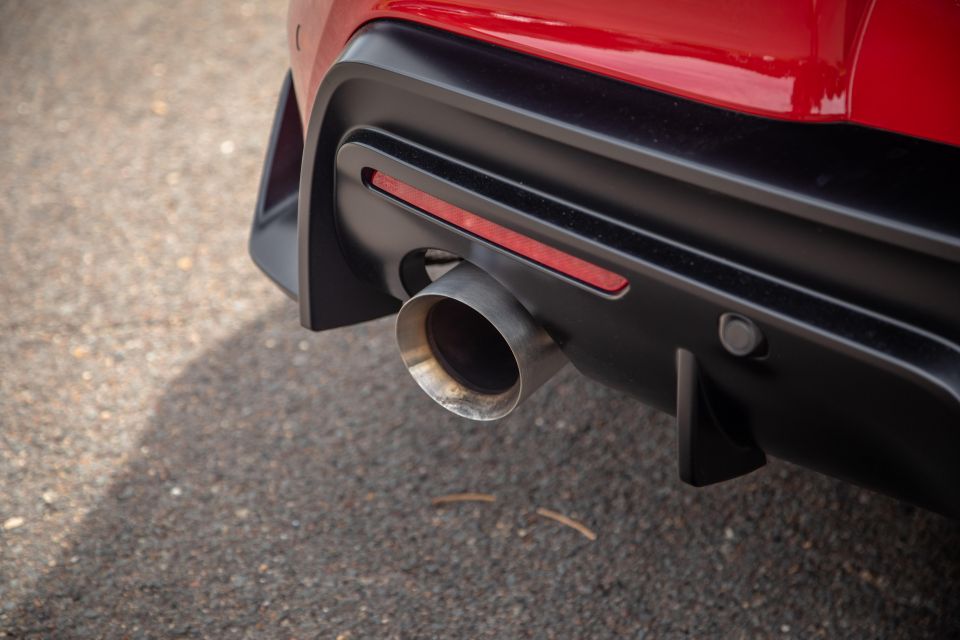
Toyota
The latest-iteration Supra’s BMW twin-scroll turbo six shares its displacement with the Nissan but has an inline cylinder formation.
It produces an inferior 285kW of peak power but a meatier 500Nm of peak torque, though the Nissan’s maximum torque band is wider. The sole transmission is an eight-speed automatic, driving the rear wheels.
Toyota claims a standing 0-100km/h time of just 4.1 seconds, which will be quite a target for the Nissan.
| Nissan Z | Toyota Supra | |
|---|---|---|
| Engine | 3.0 V6 twin-turbo | 3.0 inline-six turbo |
| Power | 298kW @ 6400rpm | 285kW @ 5800rpm |
| Torque | 475Nm @ 1600-5600rpm | 500Nm @ 1800-5000rpm |
| Weight | TBC (370Z: 1490kg) | 1505kg |
| Redline | 6800rpm | 6500rpm |
| Trans | 6-speed manual or 9-speed auto | 8-speed auto |
| Drive type | Rear | Rear |
| LSD | Mechanically controlled | Electronically controlled |
| 0-100km/h | TBC | 4.1 sec |
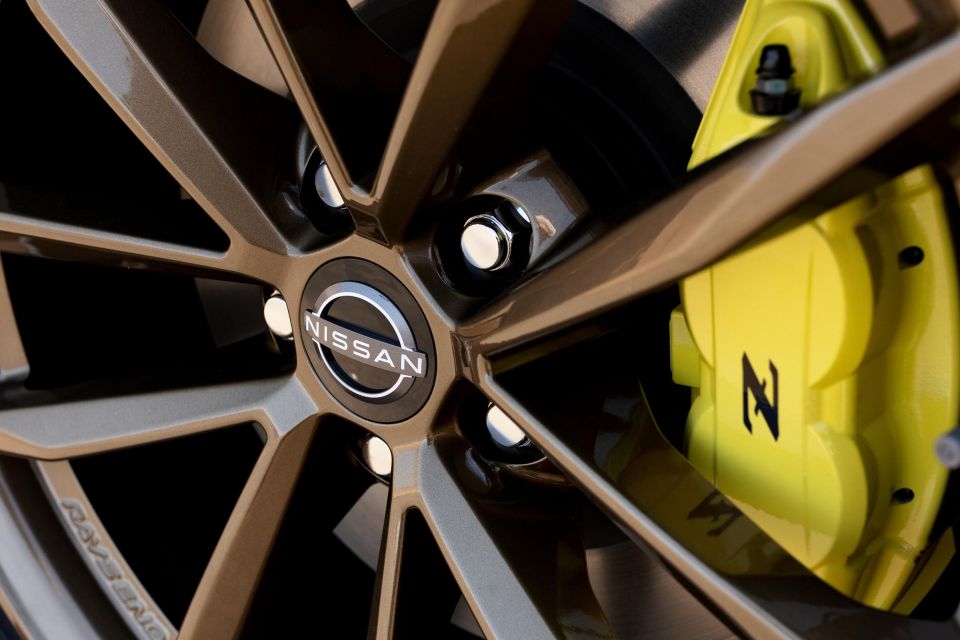
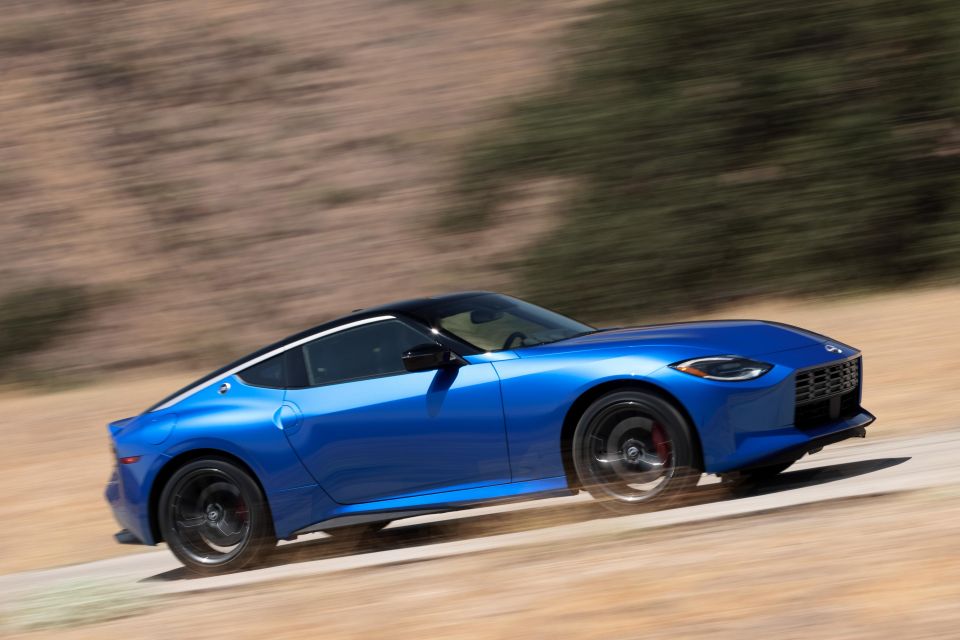
Nissan
Compared to the 370Z, the new Z is billed as having greater body rigidity.
It also adopts electric power steering (with “mechanical feel”), new larger-diameter shocks, revised front suspension geometry, and sports modes that recalibrate the throttle response, steering weight, cabin sounds and stability control.
The suspension comprises double wishbones and multi-link, the largest available wheels (RAYS forged alloy) are 19-inch, and they wear Bridgestone Potenza S007 rubber.
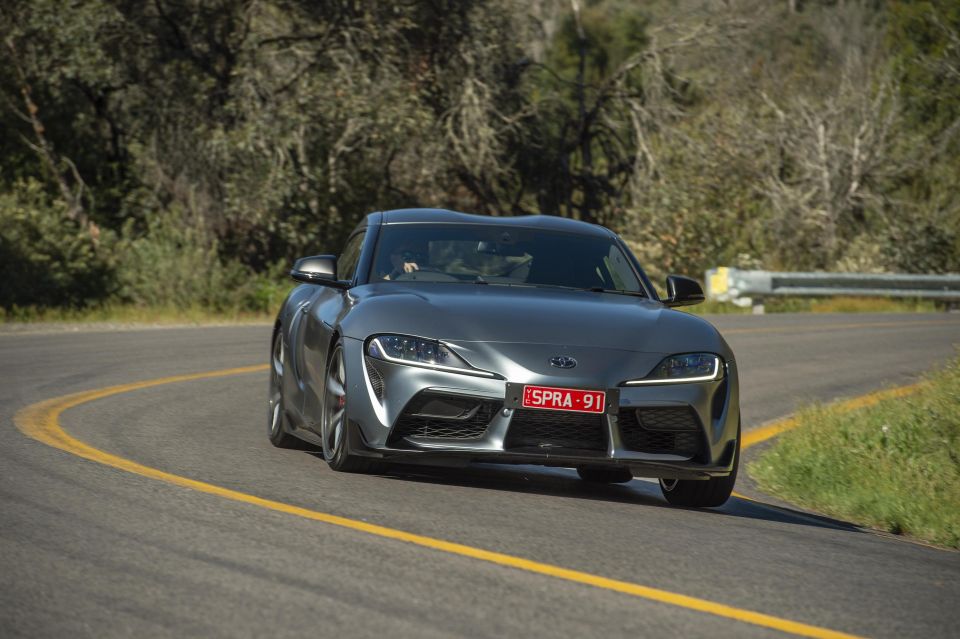
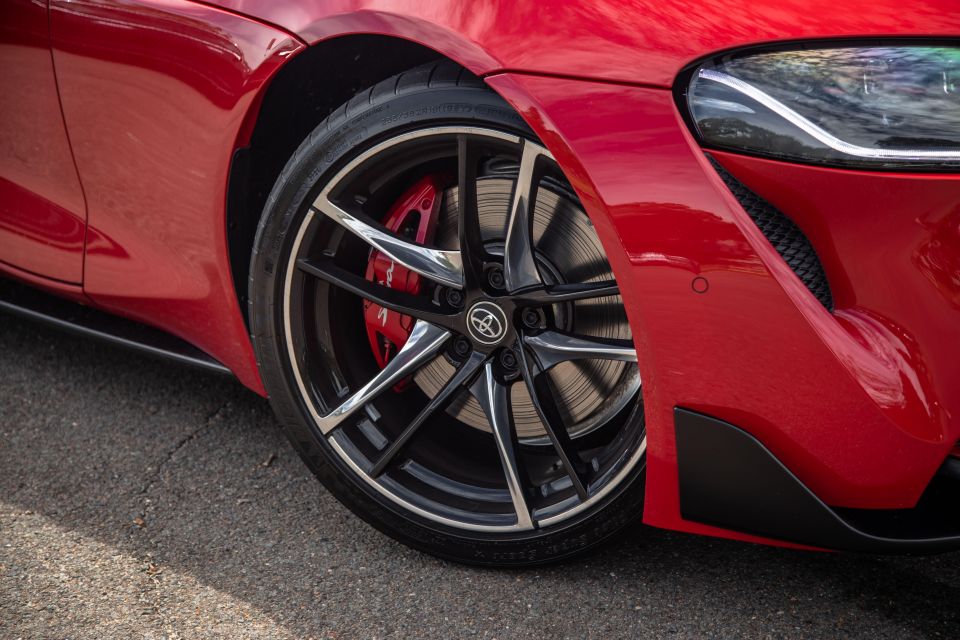
Toyota
Whether the Nissan can stack up to the stiffness of the Supra’s monocoque, or undercut its kerb 1505kg kerb weight (the 370Z Nismo topped out at 1490kg) remains to be seen.
The Supra likewise has speed-sensitive electric steering with adjustable resistance linked to driving modes. It also has adaptive variable dampers over the Nissan. The rear LSD is electronically actuated, where the Z’s is mechanical.
Suspension comprises MacPherson struts at the front and multi-link at the rear, and it rolls on Michelin Pilot Super Sport tyres.
| Nissan Z | Toyota Supra | |
|---|---|---|
| Front brakes | Vented, 356mm rotors | Vented, 348mm rotors |
| Rear brakes | Vented, 350mm rotors | Vented, 345mm rotors |
| Front suspension | Double-wishbone | MacPherson strut |
| Rear suspension | Multi-link | Multi-link |
| Steering | Electric-assisted | Electric-assisted |
| Wheels | 19-inch | 19-inch |
| Tyres | 255/40 (f), 275/35 (r) | 255/35 (f), 275/35 (r) |
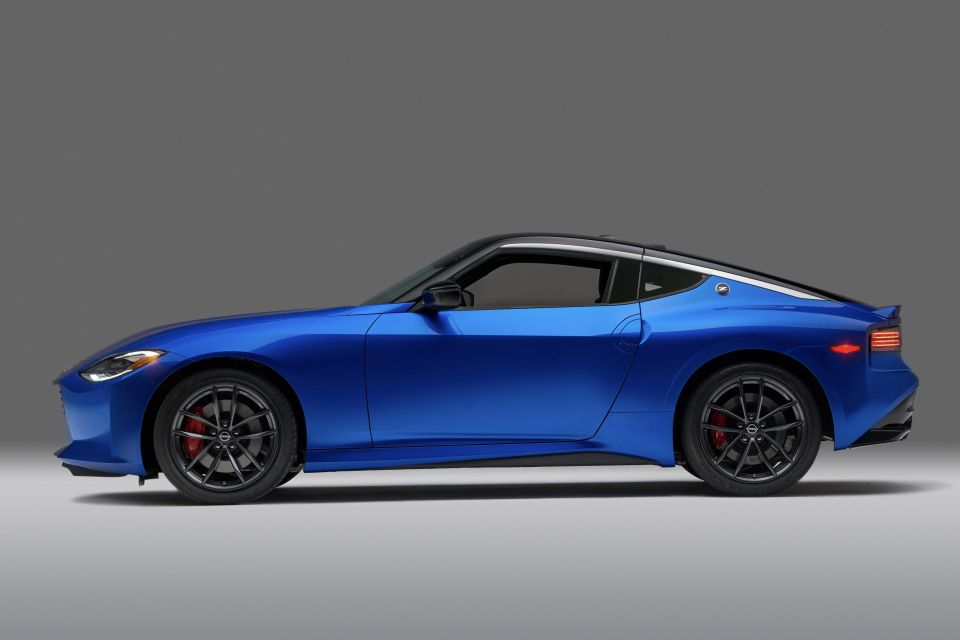
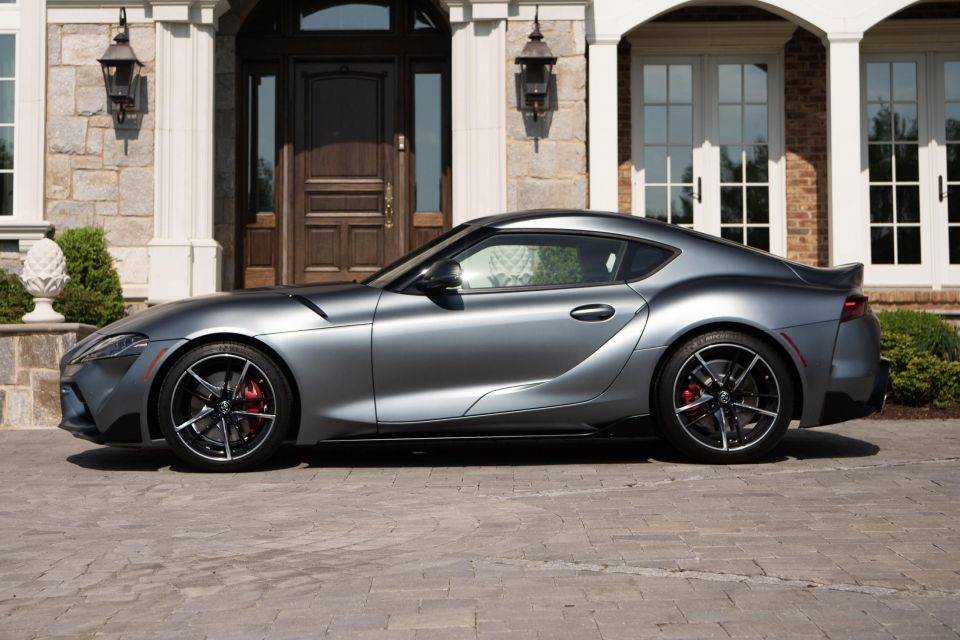
The Nissan Z is billed as a fusion of some previous classic Z cars down to the colour palette. But to our eyes it’s a convincing pastiche.
The side profile is very reminiscent of a 240Z, the tail lights remind one of a Z32 Nissan 300ZX, and the square front intake has some 350Z about it.
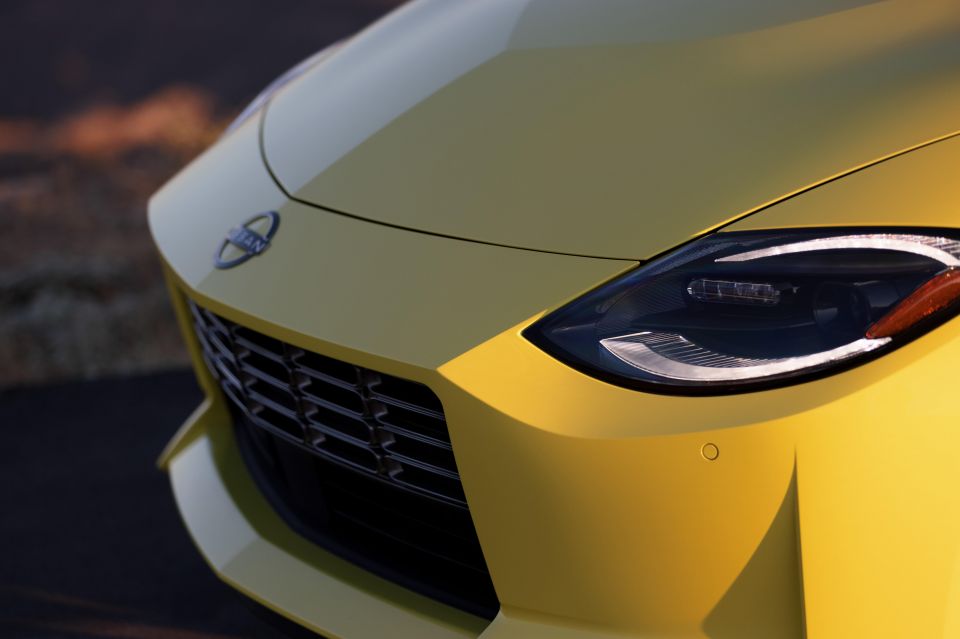
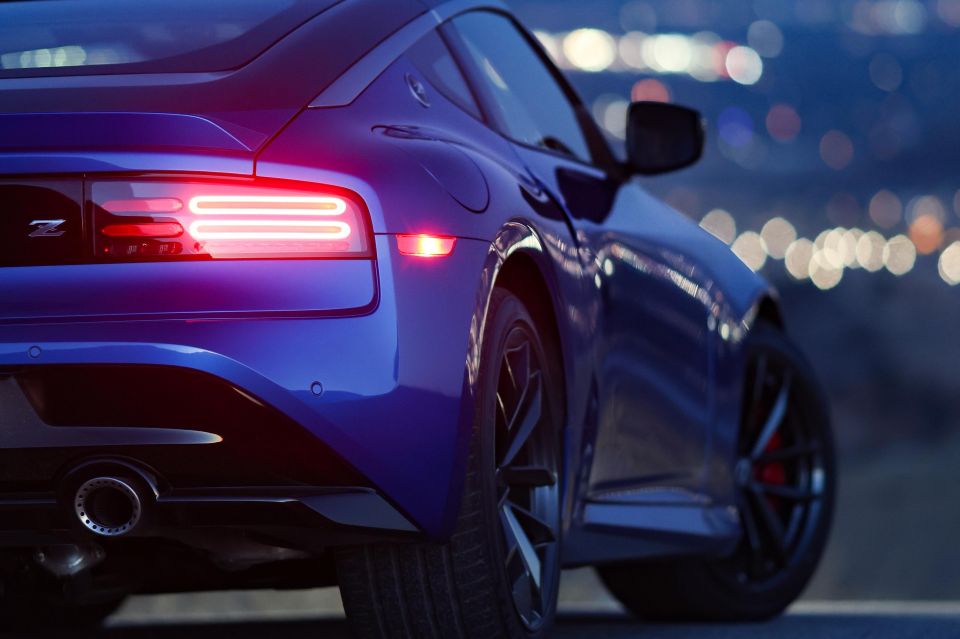
The Toyota Supra has similar proportions – long bonnet, broad shoulders and muscular haunches – but is both wilder and more fussy than the clean Z.
There’s more body sculpting and visible shutlines, a side (potential) air duct, and a vaguely F1-inspired nose design and diffuser.
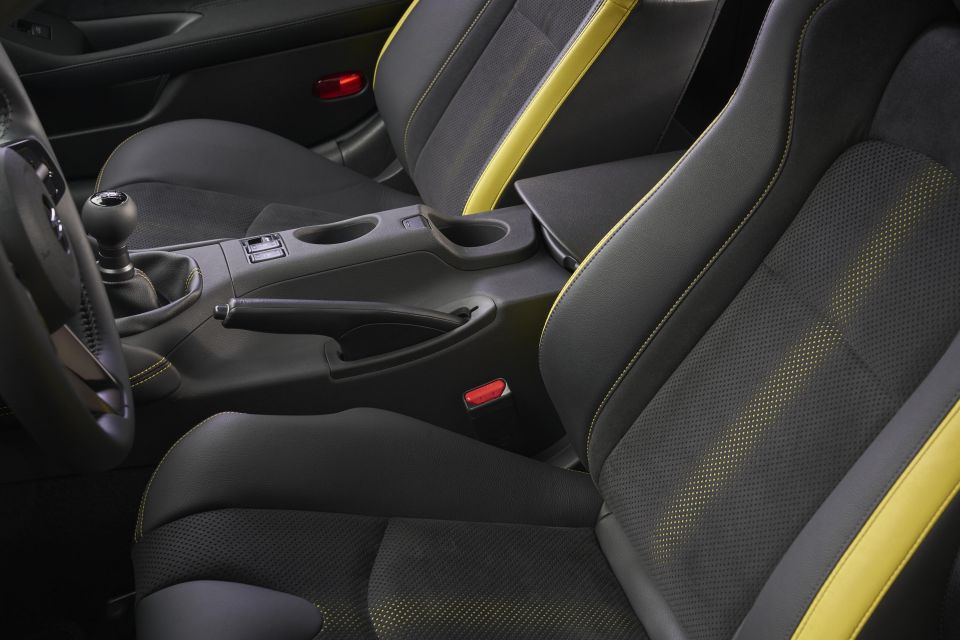
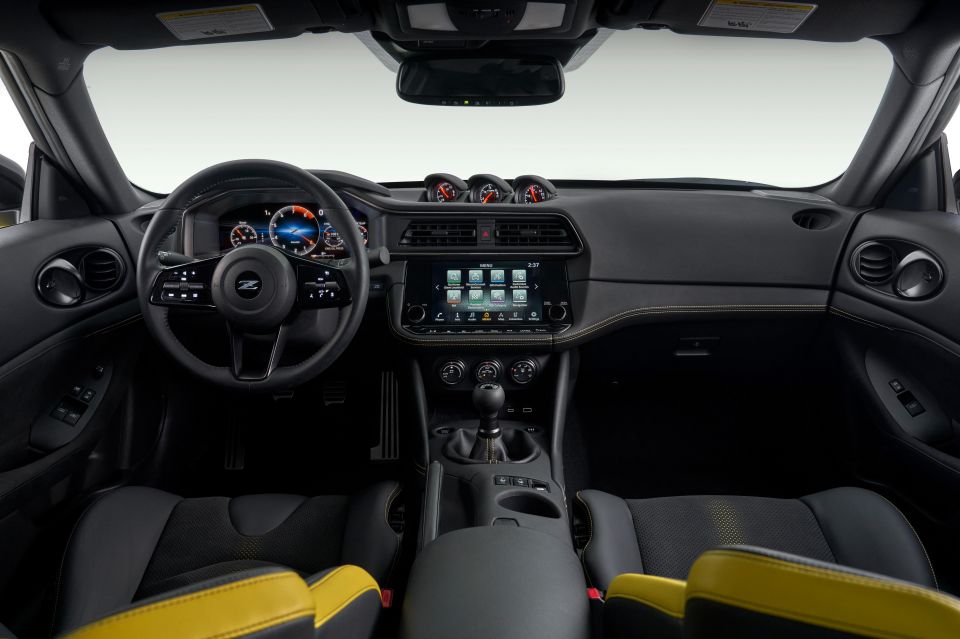
Nissan
The 2023 Nissan Z’s centre tunnel and door handles look mighty familiar from the 370Z, and there’s still a manual handbrake in here alongside the manual stick.
Otherwise everything is a decade more modern, as you’d expect.
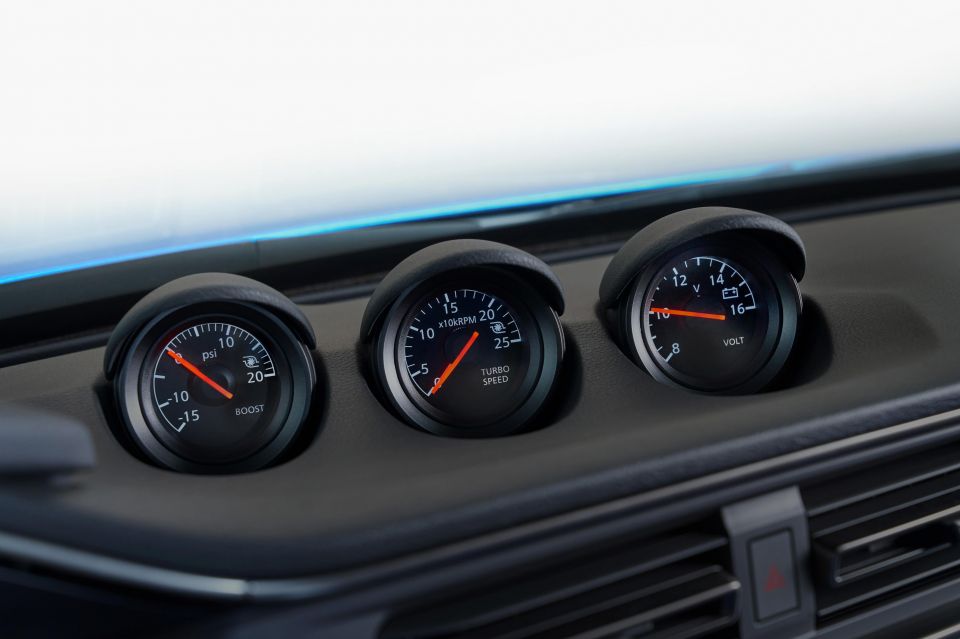
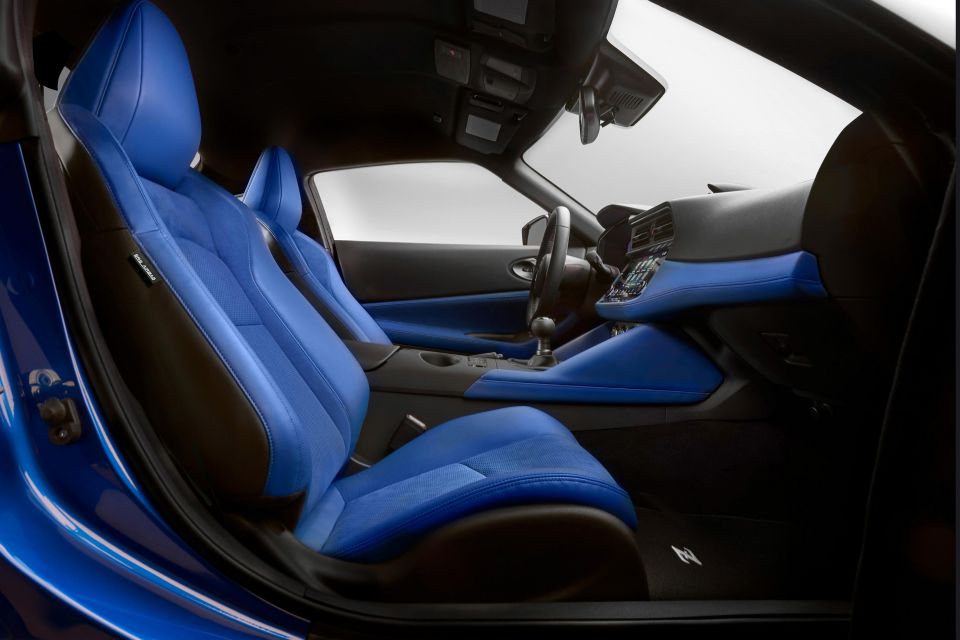
CarExpert brings reviews, research tools and trusted buying support together, guiding you from research to delivery with confidence.
Headline features are the 12.3-inch digital instrument cluster with boost gauge and G meter, a trio of analogue pod gauges atop the dash (boot, turbo speed, voltage), deep dish steering wheel, and bucket seats inspired by the GT-R.
Infotainment is available on either 8.0-inch or 9.0-inch touchscreens depending on spec grade. There are also red, black or blue colourways to choose from, plus bright yellow accents on the Z Proto Spec launch special edition.
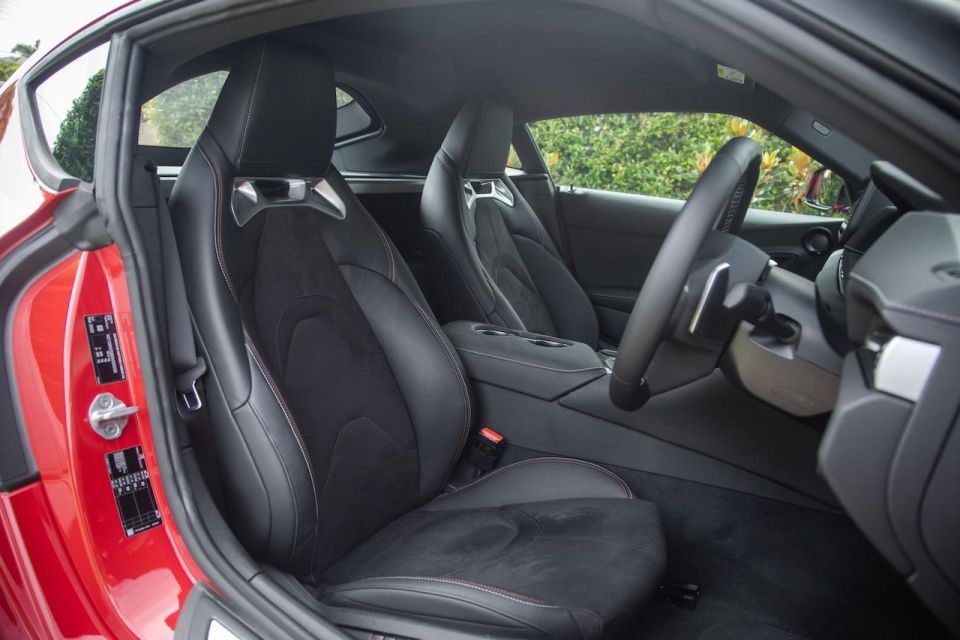
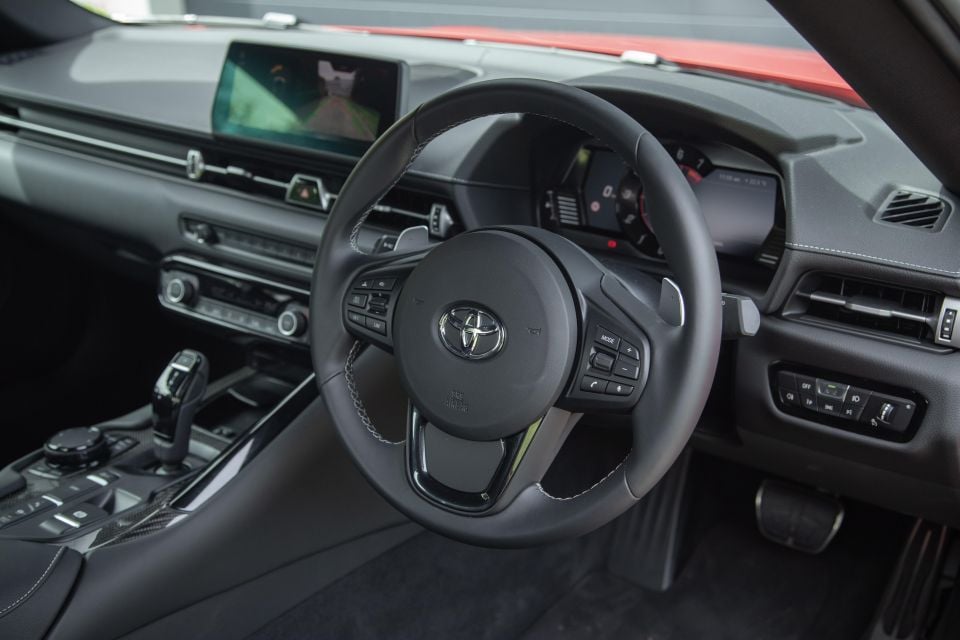
Toyota
The Supra’s interior uses a familiar BMW iDrive rotary controller with button shortcuts, and a high-mounted 8.8-inch touchscreen for infotainment.
There’s an electric park brake switch and paddle shifters behind the chunkier wheel.
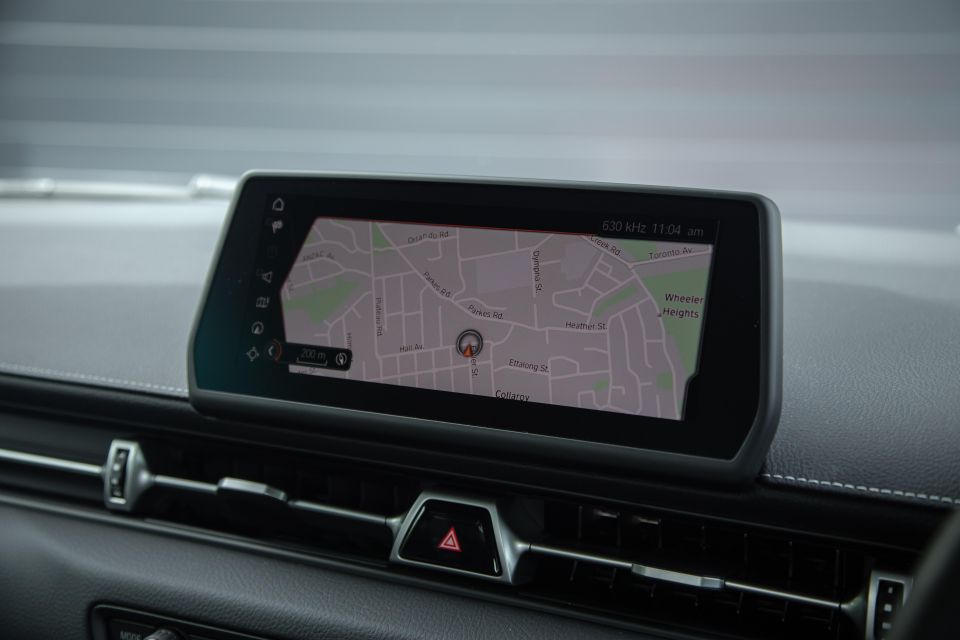
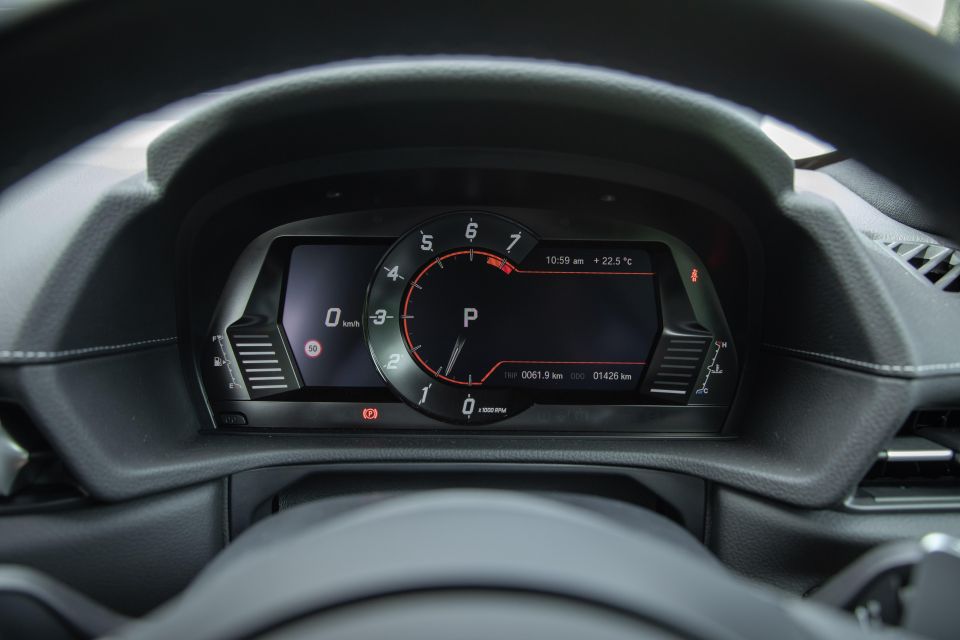
The simple digital instrument cluster with 3D tacho readout and digital speedo is a Toyota item to bring some differentiation, and is augmented by a projecting head-up display on the windscreen.
Everything is driver-oriented and Toyota’s Gazoo Racing arm designed the bucket seats, and knee protection along the doors and tunnel.
What do you think, does the new Z stack up against the Supra?
MORE: 2023 Nissan Z confirmed for Australia MORE: Toyota Supra news and reviews
Share your thoughts with us in the comments below!
Share your thoughts and write a review of a car you own and get featured on CarExpert.


Damion Smy
5 Minutes Ago
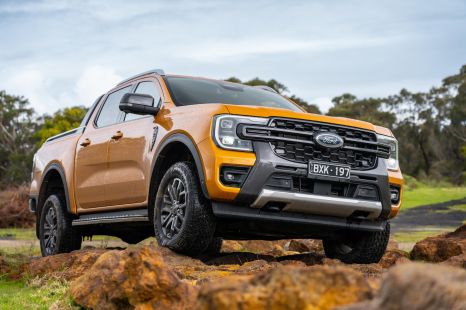

William Stopford
59 Minutes Ago
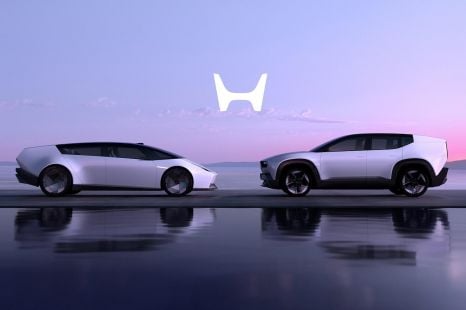

Derek Fung
5 Hours Ago
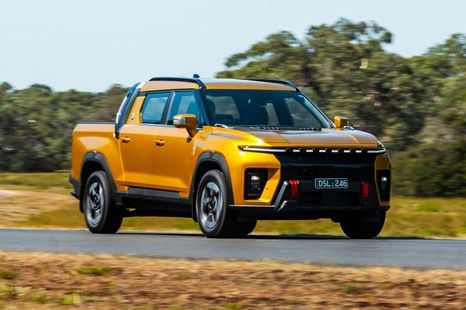

Ben Zachariah
11 Hours Ago


James Wong
11 Hours Ago
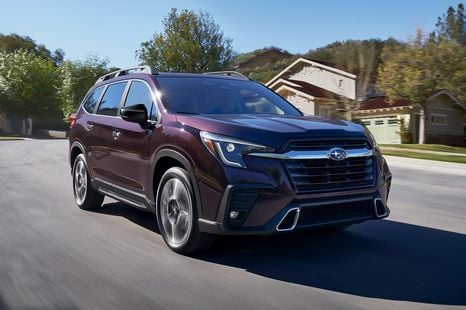

James Wong
11 Hours Ago